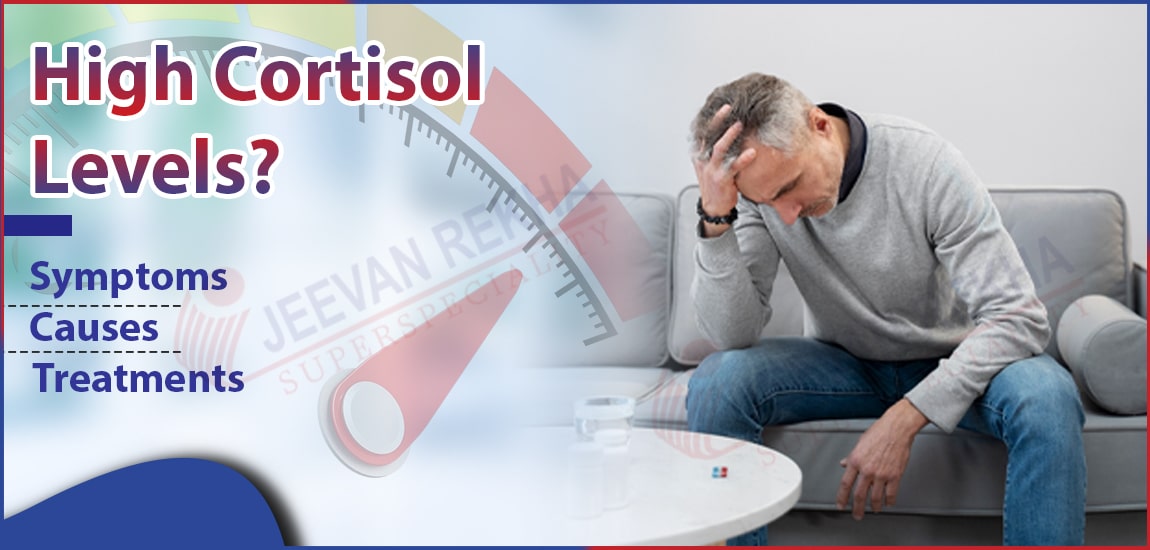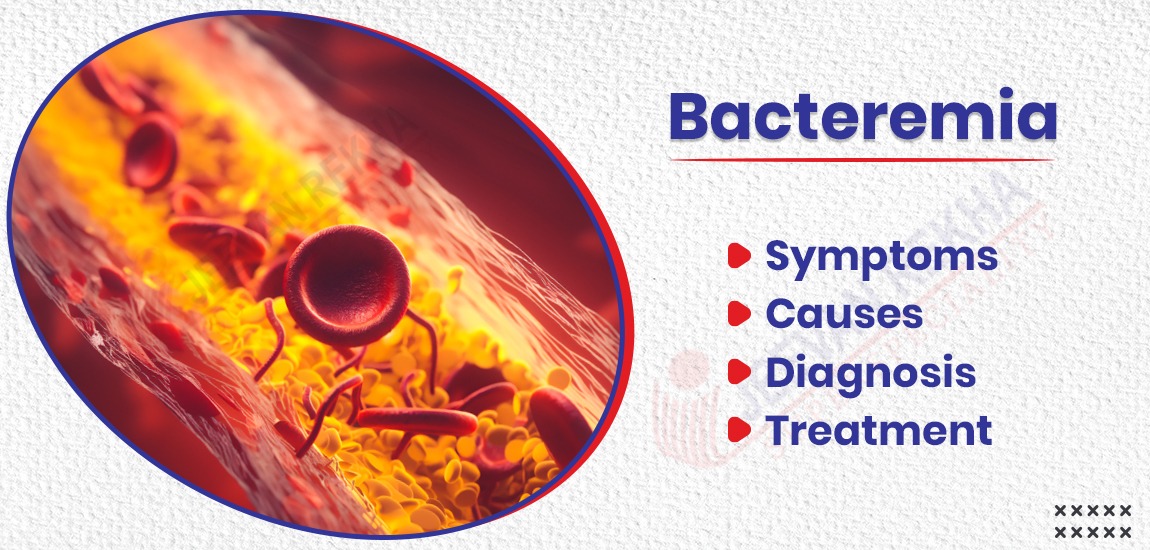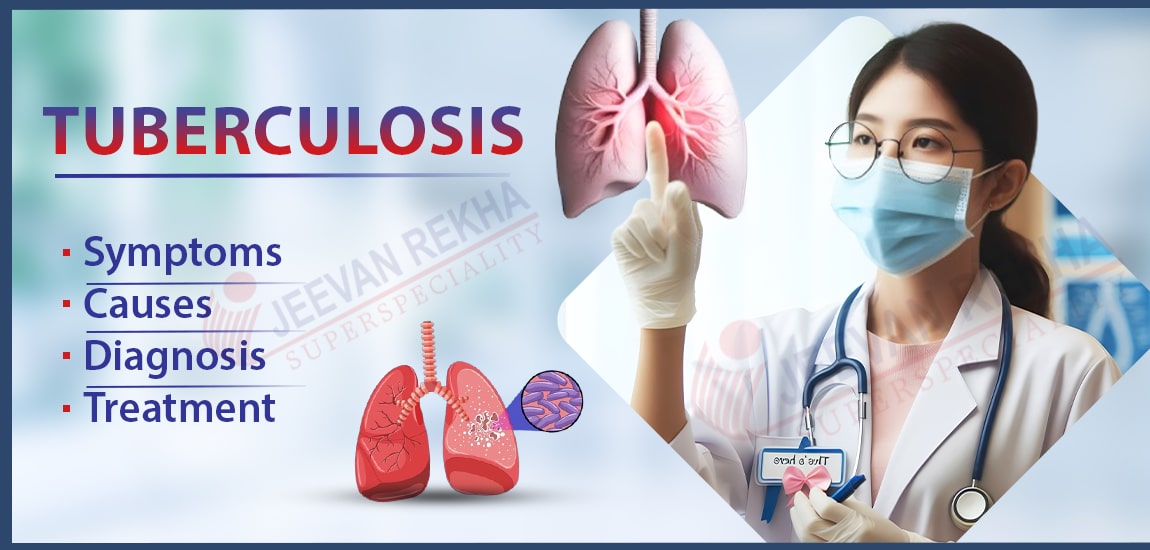
- By Admin
- In Health and Tips,
- Posted June 16, 2025
What Are the Symptoms, Causes and Treatments of High Cortisol Levels?
The adrenal glands housed above each kidney secrete cortisol. This hormone is very much needed for several bodily functions, such as metabolism, inflammation reduction, blood sugar level control, and stress response. It is, thus, often called the "stress hormone" as its levels fluctuate naturally through the day, with peak times in the morning and lows during the nighttime.
However, chronically high levels of cortisol may wreak havoc on health. Knowing the symptoms, causes, and treatments for high cortisol is thus essential for general health and well-being.
Definition of High Cortisol
When the body produces too much cortisol for an extended period of time, it is said to have high cortisol or hypercortisolism. Cushing's syndrome can bring about hypercortisolism due to tumors, prolonged corticosteroid medication use, or some other problem with the adrenal or pituitary glands.
Continually high cortisol can affect pretty much every organ system in the body and often whips up acute stress or more serious medical issues.
Symptoms of High Cortisol
Symptoms of excessive cortisol may differ depending on the extent and duration of the anomalies. Symptoms often include:
- Weight Gain:The several fat deposits appear particularly on the face ("moon face"), in the abdominal region, and upper back while the thin limbs are spared. This regional accumulation of fat is a distinguishing feature observed when cortisol is in excess.
- Some Changes in Mood: High levels of cortisol are predominantly said to cause anxiety, depression, irritability, and mood swings.
- Sleep Problems: People often complain about insomnia or poor sleep quality, as cortisol disrupts the normal sleep-wake cycle.
- Increase in Blood Pressure: High blood pressure may be caused by high levels of cortisol due to constriction of blood vessels, which might lead to cardiovascular risks.
- Muscle Weakness: Cortisol leads to the breakdown of muscle tissue so very slowly, muscular weakness, and feelings of fatigue set in.
- Skin Thinning and Easy Bruising: A chronically high cortisol level causes easy bruising, thinning of the skin, or slow healing.
- Slow Healing: Cuts and wounds take longer time to heal because of cortisol slowing the immune system.
- Excessive Thirst and Urination: Thirst and frequent urination may resemble diabetes, but they may also be symptoms of metabolic derangement due to cortisol.
- Irregularities in Menstrual Cycles or Fertility Problems: High cortisol levels can cause a hormonal imbalance in women, thus leading to irregularities in the menstrual cycle and affecting fertility.
You can read also : What Is the Normal Sugar Level After Meals & How to Lower It Quickly with Food?
Causes of High Cortisol
A number of conditions may trigger high cortisol levels. These can be categorized broadly into endogenous, which originate inside the body, and exogenous factors, which are external.
1. Chronic Stress:This is the most prominent cause unassociated with disease. It keeps the fight-or-flight response so perpetually stimulated that adrenal glands are constantly prompted to release cortisol.
2. Cushing’s Syndrome: This rare but grave condition is when the body produces excessive amounts of cortisol. It is caused by:
- Pituitary tumors (Cushing's disease)
- Adrenal tumors
- Ectopic ACTH syndrome, whereby non-pituitary tumors produce ACTH, which stimulates cortisol release
3. Corticosteroid Medications: Secondary to the therapeutic use of corticosteroids like prednisone and dexamethasone for diseases such as asthma, rheumatoid arthritis, or lupus.
4. Disturbances in Sleep or Shift Work: Disruption of the circadian rhythm can impinge upon cortisol production and cause it to increase, mostly at night.
5. Alcoholism and Depression: Both could cause hormonal imbalances, including increased production of cortisol.
6. Polycystic Ovary Syndrome (PCOS): PCOS is correlated with elevated cortisol levels and a defective stress response.
High Cortisol Treatment
Treatment depends on the cause. The aim is to reduce cortisol to normal levels and treat the symptoms.
1. Lifestyle Changes: Stress Management: Yoga, meditation, deep breathing, or cognitive behavioral therapy (CBT) are stress-relieving activities that reduce cortisol.
- Regular Exercise: Moderate exercise reduces stress and balances hormones.
- Adequate Sleep: It is important to set sleep hours and maintain good sleep hygiene.
- Balanced Diet: Diet with whole foods and minimal sugar and caffeine is beneficial to adrenal health.
2. Medication: When caused by Cushing syndrome or adrenal tumor, drugs that lower cortisol (such as ketoconazole or metyrapone) may be used.
With depression and anxiety playing a role in cortisol elevation, antidepressants or anxiolytics might be the best option to lower cortisol.
3. Surgery or Radiation: For tumors on the adrenal glands, pituitary gland, or other areas, doctors may need to remove the tumor. If surgery isn't possible, they might use radiation therapy.
4. Tapering Off Corticosteroids: If high cortisol is due to long-term corticosteroid use, a doctor may slowly lower the dosage to allow the adrenal glands to function normally again.
5. Hormone Therapy: In rare cases, hormone replacement therapy may be necessary if cortisol levels fall too low after treatment.
You can read also : 7-Day Diet Plan For Diabetic Patients
When Should You Contact a Doctor?
You should consult a healthcare professional if you experience multiple symptoms of high cortisol over a long period, especially if they disrupt your daily life. Seek medical help if you notice:
- Unexplained weight gain or swelling
- Severe fatigue or muscle weakness
- Menstrual changes or infertility
- Mood changes like depression or anxiety
- High blood pressure that does not respond to medication
A doctor can order tests such as:
- Saliva cortisol test
- 24-hour urinary free cortisol
- Blood cortisol levels
- Imaging tests, such as MRI or CT scans to check for tumors
Early diagnosis and treatment are important to prevent long-term issues like diabetes, osteoporosis, heart disease, and cognitive decline.
Conclusion
At Jeevan Rekha Hospital in Jaipur, we understand how much hormonal imbalances, especially high cortisol levels, can affect your health and quality of life. Our team of experienced endocrinologists, doctors, and diagnostic experts is committed to providing personalized care and effective treatment options to help you regain balance and wellness.
If you’re dealing with ongoing symptoms like unexplained weight gain, fatigue, mood changes, or other signs of high cortisol, we encourage you to book a consultation. Catching issues early and getting timely help are important for preventing complications and improving long-term health.
Your well-being is our priority. At Jeevan Rekha Hospital, we’re here to support you every step of the way toward a healthier, stress-free life.
Tags
Blog Search
Latest Posts
-
Skin Ulcers Uncovered: Causes, Types, Symptoms, and Healing Options
January 13, 2026 -
Is Coconut Water Safe During Pregnancy? Benefits, Risks & Myths
January 08, 2026 -
Dark Circles Under The Eyes: Causes, Home Remedies and Treatments
December 21, 2025 -
बर्ड फ्लू के लक्षण, कारण, उपचार और बचाव के उपाय जानें
December 04, 2025 -
Best Diet Plan for Menopause Weight Management
November 25, 2025




